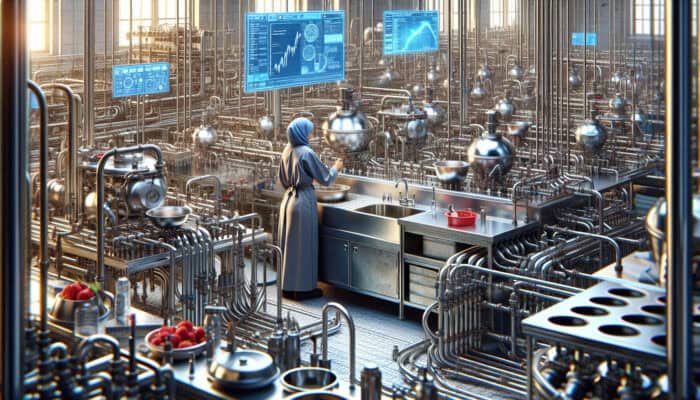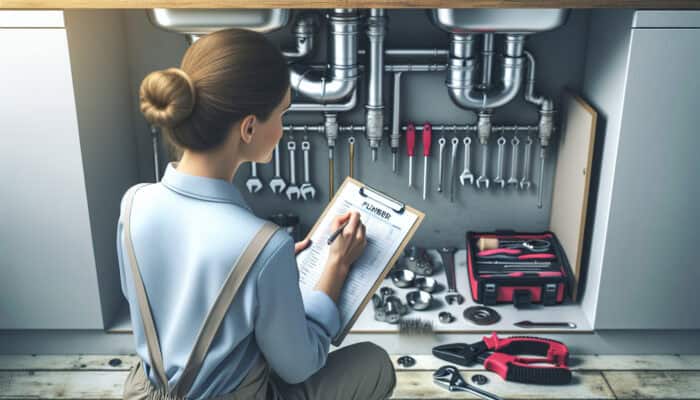Your Comprehensive Guide to Top-Quality Commercial Plumbing Services
What Are the Essential Features of High-Quality Commercial Plumbing Services?

Commercial Plumbing Services in Langley play a vital role in ensuring the seamless operation of businesses, providing essential support for plumbing systems that must function flawlessly to maintain productivity. These services encompass a variety of tasks, including the installation of diverse plumbing fixtures, effective repairs, and routine maintenance across commercial properties. A well-structured plumbing system is not only fundamental for everyday operations but also crucial for compliance with health and safety regulations. The primary services typically offered in this sector consist of:
- Expert installation of pipelines and fixtures
- Thorough drain cleaning and repair
- Emergency plumbing services for urgent situations
- Water heater installation and regular maintenance
- Backflow prevention services to protect water quality
- Pipe inspection and repair to ensure integrity
- Leak detection and prompt repair to avoid damage
- Gas line installation and repair for safety
These services are essential for sustaining operational efficiency across a wide array of business types, from busy restaurants to expansive office complexes. Engaging qualified plumbing professionals is crucial, as the absence of their expertise can lead to interruptions that may result in costly downtime and operational inefficiencies.
Why Is Engaging Professional Plumbing Services Essential for Your Business Operations?
Leveraging the expertise of professional plumbing specialists is crucial for any business that seeks to maintain uninterrupted operations. Neglecting proper plumbing maintenance can lead to severe complications, such as sewage backups that disrupt daily activities and pose significant health and safety hazards. Regular plumbing maintenance is indispensable for preventing issues like water damage, structural deterioration, and potential legal liabilities due to non-compliance with local regulations.
The financial ramifications of inadequate plumbing can be considerable. For instance, a seemingly insignificant leak can escalate into a major repair project that costs thousands of pounds if left unattended. Therefore, investing in routine maintenance is not merely a cost; it represents a strategic investment that supports the long-term sustainability and success of any business.
What Types of Commercial Plumbing Systems Are Commonly Used?
Commercial properties employ various plumbing systems specifically designed to meet their operational demands. These systems generally include:
- Drainage systems: Essential for the efficient removal of wastewater from commercial buildings, preventing flooding and associated health risks.
- Water supply systems: Responsible for delivering clean, potable water for multiple applications, including drinking, cooking, and sanitation.
- Gas line systems: Critical for heating and cooking in commercial kitchens, ensuring safe and effective operations.
- Sewer systems: Vital for safely managing and transporting sewage, thereby minimising environmental impact.
Each plumbing system necessitates specialised knowledge and expertise to ensure efficient operation and compliance with local regulations. A comprehensive understanding of these systems is crucial for business owners who want to maintain their infrastructure and proactively prevent costly disruptions.
Essential Tips for Selecting the Best Commercial Plumbing Services in Langley

How Can You Identify a Reliable Plumbing Service Provider?
Selecting the appropriate plumbing service provider is a critical step in ensuring effective plumbing management in commercial environments. Key factors to consider during this decision-making process include:
- Experience in commercial plumbing services
- Licensing and relevant certifications
- Customer reviews and testimonials from past clients
- Availability of 24/7 emergency services to handle urgent issues
For example, a local grocery store in Langley encountered persistent plumbing problems that disrupted its operations. After conducting thorough research, the management opted for a service provider with a proven track record in resolving commercial plumbing issues. The outcome was remarkable: a significant reduction in downtime and enhanced operational efficiency.
This real-world scenario underscores the importance of conducting comprehensive due diligence when selecting a plumbing service provider. By prioritising experienced professionals, businesses can ensure they receive tailored and reliable plumbing solutions that cater to their unique needs.
What Are the Latest Innovations in Commercial Plumbing?
Staying up to date with the latest trends in commercial plumbing can provide businesses with a competitive edge. Innovations such as water-saving technologies, including low-flow fixtures and advanced smart irrigation systems, are increasingly prevalent. Smart plumbing technologies allow for real-time monitoring and automation, significantly reducing water waste and lowering operational costs.
Moreover, the trend towards sustainable plumbing solutions is becoming more pronounced. Businesses that adopt eco-friendly materials and practices not only comply with current regulations but also enhance their reputation as socially responsible entities. For instance, a restaurant in Langley recently implemented a water recycling system, leading to substantial reductions in water bills while promoting sustainability among its patrons.
Therefore, keeping informed about these trends can result in cost savings and significant enhancements to a business’s public image, particularly in a competitive market.
What Advantages Do Regular Plumbing Maintenance Schedules Offer?

Establishing a consistent plumbing maintenance schedule is a fundamental strategy for any business aiming to avert plumbing disasters. Regular inspections can identify and address minor issues before they escalate into major repair projects, ultimately prolonging the lifespan of plumbing systems.
To create an effective maintenance plan, businesses should consider implementing the following actionable steps:
- Conduct routine inspections every six months to ensure systems are functioning properly.
- Document all repairs and maintenance activities performed for future reference.
- Train staff to recognise early signs of plumbing issues and encourage prompt reporting.
- Utilise a preventative maintenance checklist to standardise inspections.
By proactively managing plumbing systems through regular maintenance, businesses can prevent unexpected disruptions and maintain optimal performance. This approach not only saves money in the long run but also fosters a safe and comfortable environment for both employees and customers.
Identifying Common Commercial Plumbing Challenges in Langley
How Can You Effectively Detect and Address Leaks?
Leaks represent one of the most common plumbing challenges faced by commercial properties. If not swiftly addressed, they can lead to extensive water damage, mould growth, and increased utility costs. Early leak detection can save businesses from incurring hefty repair bills in the future.
Common signs indicating the presence of leaks include:
- Unexplained spikes in water bills, signalling potential leaks.
- Moisture or water stains visible on walls or ceilings that may indicate hidden leaks.
- A noticeable drop in water pressure throughout the premises.
- Presence of mould or mildew in damp areas, signalling prolonged moisture exposure.
Once a leak is identified, immediate action is crucial. Businesses should first isolate the affected area and promptly contact a professional plumber to evaluate the situation. Employing advanced leak detection technologies, such as infrared cameras or moisture meters, can expedite the identification process and minimise damage effectively.
What Steps Should Be Taken to Resolve Clogged Drains and Sewers?
Clogged drains and sewer lines frequently disrupt business operations. Common culprits include grease accumulation, foreign objects, and tree roots infiltrating sewer lines. Identifying the root cause is essential for implementing effective remediation measures.
To tackle clogged drains, businesses should consider regular maintenance to clear out debris and buildup. Additionally, they can adopt preventative measures such as:
- Installing grease traps in kitchens to prevent buildup.
- Avoiding the disposal of non-biodegradable items to maintain clear drains.
- Educating staff on proper waste disposal practices to minimise clogs.
- Utilising enzymatic drain cleaners as a preventative measure to break down buildup.
When plumbing issues arise, it is crucial to engage a professional plumbing service for thorough inspections and effective solutions, ensuring minimal disruption to business operations.
What Are the Indicators of Pipe Corrosion?
Pipe corrosion is a subtle yet significant threat that can compromise the structural integrity of plumbing systems. Early identification of the signs can help prevent leaks and extensive damage. Common indicators of pipe corrosion include:
- Discoloured water, suggesting rust contamination and deteriorating pipes.
- Low water pressure throughout the premises, indicating possible corrosion issues.
- Frequent leaks or visible water stains on walls, suggesting compromised pipes.
- An unusual metallic taste in drinking water, signalling potential contamination.
To mitigate corrosion risks, businesses should invest in high-quality plumbing materials, such as stainless steel or CPVC pipes, which are less prone to corrosion. Furthermore, conducting regular inspections and water quality testing can help pinpoint corrosion issues before they escalate into severe problems.
Partnering with professional plumbing services for routine checks can provide peace of mind, ensuring that potential issues are addressed early and effectively.
Navigating Regulatory Compliance and Safety Standards in Plumbing
What Plumbing Codes Must Be Followed in Langley?
Understanding and adhering to local plumbing codes is essential for ensuring compliance and safety in commercial plumbing. In Langley, plumbing codes are established by the British Columbia Building Code and local bylaws, outlining standards for materials, installations, and safety protocols.
These codes encompass various aspects, including:
- Specifications for pipe sizing and materials to ensure durability and safety.
- Requirements for backflow prevention to protect water quality.
- Standards for ventilation and drainage to prevent hazards.
- Regulations regarding water quality and pressure to ensure safety.
Non-compliance with these codes can lead to penalties, work stoppages, and increased liability. Businesses must ensure that any plumbing work is executed by licensed professionals well-versed in local regulations to avoid potential legal complications.
Why Are Regular Inspections an Integral Component of Plumbing Maintenance?
Conducting regular inspections is vital for maintaining safety and compliance within commercial plumbing systems. These assessments help identify potential issues before they escalate into major concerns, ensuring that plumbing systems operate efficiently and meet regulatory standards.
Routine inspections provide several benefits:
- Early detection of wear and tear, preventing costly repairs.
- Compliance with local plumbing regulations and codes to avoid penalties.
- Reduction of emergency plumbing incidents through proactive management.
- Extended lifespan of plumbing systems through regular care and maintenance.
For businesses in Langley, enlisting a qualified plumbing service provider for annual inspections can bring peace of mind, allowing them to focus on their core operations without the burden of plumbing-related worries.
How Can You Ensure Safe Water Quality in Your Business?
Ensuring safe water quality is crucial for public health and compliance with health regulations. Businesses must implement proactive measures to effectively test and maintain their water systems.
Methods to guarantee water quality include:
- Regular testing for contaminants, such as bacteria and heavy metals, to ensure safety.
- Installing filtration systems to improve water purity and taste.
- Implementing backflow prevention devices to protect water supply.
- Conducting routine maintenance on water heaters and treatment systems to ensure proper functioning.
Incorporating these practices not only protects public health but also enhances a business’s reputation. Organisations that prioritise water quality stand out as responsible and health-conscious, fostering trust among both customers and employees.
Strategic Cost Management and Budgeting for Plumbing Services
What Factors Influence the Cost of Plumbing Services?
Understanding the various factors that impact plumbing service costs is crucial for effective budget management. Several elements can influence the overall price, including:
- The complexity of the plumbing issue at hand, which affects labour and materials.
- The materials and parts required for repairs, impacting overall costs.
- The labour costs associated with the job, including the expertise required.
- Fees for emergency services during after-hours calls, which can vary.
For example, a straightforward leak repair may incur significantly lower costs compared to a complete pipe replacement, highlighting the importance of early detection and routine maintenance. Businesses should proactively discuss potential costs with their service providers and budget accordingly to avoid unexpected financial burdens.
What Strategies Can Help Reduce Plumbing Maintenance Costs?
Implementing cost-effective plumbing maintenance strategies can lead to substantial savings for businesses. Here are several tips for organisations looking to minimise plumbing expenses:
- Create a preventative maintenance schedule to catch issues early and avoid costly repairs.
- Educate staff on proper plumbing usage and care to reduce mishaps.
- Invest in high-quality fixtures and equipment that offer longevity and durability.
- Utilise water-saving technologies to decrease monthly bills and conserve resources.
By prioritising maintenance and educating staff, businesses can significantly decrease the likelihood of costly emergency repairs, ensuring that their plumbing systems remain functional and efficient.
How Can You Effectively Plan a Plumbing Budget for Your Business?
Effective budgeting for plumbing services begins with a clear understanding of the potential costs associated with both maintenance and repairs. Businesses should follow these steps to create a comprehensive plumbing budget:
- Review past plumbing service invoices to gauge typical costs and identify patterns.
- Assess the age and condition of plumbing systems to anticipate potential repairs.
- Allocate a buffer for unexpected emergencies to avoid financial strain.
- Consult with a plumbing professional to estimate future needs and associated costs.
By planning and designating funds for plumbing services, businesses can avoid financial strain while being prepared for necessary repairs or upgrades.
What Best Practices Should Be Followed When Negotiating Plumbing Service Contracts?
Negotiating plumbing service contracts can yield cost savings and improved service terms. To secure favourable conditions, consider the following strategies:
- Research multiple service providers to gain insights into prevailing rates and services.
- Request detailed quotes that outline all costs involved to avoid surprises.
- Leverage long-term service needs to negotiate discounts and better terms.
- Discuss bundled services for additional savings opportunities and comprehensive care.
Establishing a strong relationship with a plumbing provider can also enhance negotiation outcomes. By being transparent about your business’s needs and expectations, you can foster a mutually beneficial partnership.
Implementing Effective Strategies for Commercial Plumbing Services in Langley
How Can You Successfully Implement Preventive Maintenance Programs?
Implementing a preventive maintenance program is essential for minimising plumbing emergencies and extending the lifespan of plumbing systems. The following steps can assist businesses in establishing an effective program:
- Identify all plumbing components that require regular inspections to ensure functionality.
- Create a detailed checklist for routine maintenance tasks to guarantee thorough completion.
- Schedule inspections based on usage patterns and wear factors to maximise effectiveness.
- Log all maintenance activities and outcomes for future reference and improvement.
By prioritising maintenance, businesses can significantly reduce the likelihood of unexpected plumbing failures, ensuring smooth operations and safeguarding their investment in infrastructure.
What Are the Best Practices for Managing Plumbing Emergencies?
Understanding how to effectively manage plumbing emergencies is vital for minimising damage and reducing downtime. Best practices include:
- Quickly identifying the source of the problem to take immediate action.
- Shutting off the water supply to prevent further damage to the property.
- Contacting a professional plumbing service immediately for expert assistance.
- Documenting the incident for insurance purposes and future reference.
In a recent scenario, a Langley office complex experienced a burst pipe during business hours. By following these best practices, the management was able to mitigate damage and restore normal operations within hours, highlighting the significance of preparedness in emergencies.
Why Is Staff Training on Basic Plumbing Knowledge Important?
Training staff on basic plumbing knowledge empowers them to recognise issues early, thereby preventing costly repairs. Consider the following aspects of an effective training program:
- Educating staff about common plumbing problems and viable solutions they can handle.
- Instilling awareness of proper usage and maintenance of plumbing fixtures to reduce wear.
- Encouraging proactive reporting of plumbing-related issues to address them promptly.
- Providing first-response training for minor emergencies to empower staff.
Real-world examples demonstrate that businesses investing in staff training have seen a decrease in plumbing-related incidents. This proactive approach not only reduces the need for professional interventions but also fosters a culture of accountability among employees.
How Can You Choose a Trustworthy Commercial Plumbing Service Provider?
Selecting a reliable commercial plumbing service provider is crucial for effective maintenance and service delivery. Key factors to evaluate include:
- Experience in managing commercial plumbing systems to ensure expertise.
- Availability of emergency services for urgent issues that arise.
- Customer feedback and testimonials to gauge service quality.
- Certifications and insurance coverage to ensure compliance and safety.
Assessing potential providers based on these criteria ensures that businesses engage with qualified professionals capable of effectively addressing their unique plumbing challenges.
Exploring Innovations and Technology in Commercial Plumbing
How Do Smart Plumbing Systems Enhance Efficiency?
Smart plumbing systems utilise advanced technologies to improve the efficiency and functionality of plumbing infrastructures. These systems incorporate sensors and IoT (Internet of Things) technology to monitor water usage, detect leaks, and automate water flow.
The benefits of smart plumbing systems include:
- Real-time monitoring of water usage and reduction of waste significantly.
- Immediate alerts for leaks or malfunctions, allowing for prompt action.
- Enhanced control over water resources and related costs, improving budgeting.
- Integration with building management systems for seamless operation and efficiency.
As businesses in Langley adopt these technologies, they are likely to experience cost savings and improved sustainability, reflecting a forward-thinking approach to plumbing management.
What Are the Benefits of Integrating Water-Saving Technologies?
Incorporating water-saving technologies offers substantial advantages for commercial enterprises. These innovations not only conserve water but also lead to lower operational costs. Key benefits include:
- Decreased water bills through efficient utilisation of resources.
- Compliance with environmental regulations that promote sustainability.
- Enhanced reputation as a sustainable business, attracting eco-conscious customers.
- Potential tax incentives for implementing green technologies that support conservation.
Companies that invest in these technologies often find that the initial costs are outweighed by long-term savings, making it a financially viable choice that benefits the environment and the bottom line.
What Are the Future Prospects for Plumbing Technology?
The future of plumbing technology is poised for exciting advancements, particularly in automation and integration with smart building systems. Innovations such as AI-driven diagnostics and predictive maintenance are on the horizon.
Potential developments may include:
- Increased use of artificial intelligence for troubleshooting and predictive analytics.
- Enhanced remote monitoring capabilities to ensure efficient operations.
- Integration of plumbing systems with renewable energy sources to improve sustainability.
- Advancements in materials that extend the lifespan of plumbing fixtures and reduce waste.
As these technologies develop, they are set to revolutionise the future of commercial plumbing, delivering more efficient, sustainable, and cost-effective solutions for businesses.
Real-World Case Studies and Success Stories in Plumbing
How Did a Local Business Successfully Navigate Plumbing Challenges?
A local restaurant in Langley faced recurring plumbing issues that disrupted operations and negatively impacted customer satisfaction. After consulting with an experienced plumbing service provider, they implemented a comprehensive maintenance plan that included regular inspections and staff training.
The results were impressive—issues were identified early, and emergency repairs sharply decreased. This proactive approach not only saved money but also revitalised the restaurant’s standing in the community, showcasing the importance of effective plumbing management.
This case exemplifies the value of investing in professional plumbing services and the long-term benefits that can arise from a proactive maintenance strategy.
What Key Lessons Can Be Learned from Successful Plumbing Projects?
Notable plumbing projects in Langley often provide invaluable insights for other businesses. For instance, a large office complex recently underwent a significant plumbing overhaul, incorporating energy-efficient fixtures and smart plumbing technologies.
Key takeaways from this project include:
- The necessity of thorough planning and budgeting for plumbing upgrades to ensure success.
- The importance of engaging experienced professionals who are knowledgeable about the latest technologies and best practices.
- The value of integrating sustainable practices into plumbing renovations for environmental compliance.
- The benefit of regularly communicating with staff about changes and new procedures to ensure smooth transitions.
These lessons can serve as a guide for other commercial enterprises in effectively navigating their plumbing challenges and achieving successful outcomes.
Why Is Customer Feedback Crucial in Selecting Plumbing Services?
Customer testimonials are essential in evaluating plumbing service providers, offering insights into service quality and reliability. Businesses should consider the following aspects when assessing testimonials:
- Seek testimonials that reflect experiences similar to your specific needs to ensure relevance.
- Look for consistent patterns in feedback regarding reliability and professionalism.
- Engage with previous clients to gather a broader perspective and insights.
- Utilise online review platforms for a comprehensive analysis of feedback to make informed decisions.
By leveraging customer testimonials, businesses can make informed choices, ensuring they select reputable plumbing service providers capable of effectively meeting their specific requirements and expectations.
Addressing Environmental Impact and Promoting Sustainability in Plumbing
How Can Commercial Plumbing Systems Foster Sustainability?
Commercial plumbing systems can significantly contribute to sustainability through strategies that optimise water usage and waste management. Implementing efficient plumbing solutions can minimise resource consumption while lowering operational costs.
Methods to enhance sustainability include:
- Utilising water-efficient fixtures and appliances to conserve resources.
- Incorporating rainwater harvesting systems for sustainable water sourcing.
- Conducting regular maintenance to prevent leaks and waste, ensuring efficiency.
- Selecting eco-friendly plumbing materials that support a sustainable environment.
By adopting these practices, businesses not only comply with environmental regulations but also enhance their reputation as responsible corporate citizens committed to sustainability and conservation.
What Are the Advantages of Eco-Friendly Plumbing Solutions?
Embracing eco-friendly plumbing solutions yields numerous benefits for businesses, including:
- Reduced utility costs through water and energy conservation measures.
- Improved compliance with environmental regulations, avoiding penalties.
- Enhanced public perception and customer loyalty among environmentally conscious consumers.
- Potential tax incentives and rebates for implementing green technologies that support conservation efforts.
Businesses prioritising eco-friendly plumbing practices not only contribute to environmental sustainability but also position themselves as leaders in their respective industries, fostering trust and loyalty among customers.
What Strategies Can Be Implemented to Minimise Water Waste in Commercial Buildings?
Minimising water waste is essential for both environmental conservation and cost savings. Here are actionable steps businesses can take:
- Implement low-flow fixtures and automatic shut-off valves to conserve water.
- Conduct regular audits of water usage to identify wasteful patterns and rectify them.
- Train staff on appropriate water usage practices to promote conservation.
- Utilise smart irrigation systems for landscaping needs to reduce water consumption.
By adopting these strategies, businesses can significantly lower their water consumption, contributing to overall sustainability efforts while reaping financial benefits through reduced utility bills.
How Can Green Plumbing Technologies Help Reduce Environmental Impact?
Green plumbing technologies are specifically designed to minimise environmental harm while maximising efficiency. These technologies often encompass innovative materials and systems that promote sustainability.
Examples of green plumbing technologies include:
- Rainwater harvesting systems that facilitate irrigation and non-potable uses, conserving municipal water.
- Solar water heaters that significantly reduce energy consumption and costs.
- Greywater recycling systems for landscape irrigation, providing an eco-friendly alternative.
- High-efficiency toilets and showerheads that conserve water without sacrificing performance.
By integrating these technologies into their plumbing systems, businesses can significantly reduce their environmental footprint and promote sustainable practices within their operations, enhancing their corporate responsibility.
What Role Does Legislation Play in Advancing Sustainable Plumbing Practices?
Legislation plays a critical role in encouraging the adoption of sustainable plumbing practices. Regulatory frameworks often establish minimum standards for water efficiency and waste management, guiding businesses towards responsible practices.
Key components include:
- Mandatory water efficiency standards for plumbing fixtures to reduce consumption.
- Incentives for businesses adopting eco-friendly technologies that promote sustainability.
- Regulations governing wastewater treatment and management to protect the environment.
- Funding opportunities for businesses implementing green initiatives that support conservation efforts.
By understanding and complying with these regulations, businesses can not only avoid penalties but also take advantage of incentives that promote sustainable plumbing solutions, strengthening their commitment to environmental responsibility.
Frequently Asked Questions (FAQs)
What Is the Average Cost of Commercial Plumbing Services in Langley?
The average cost of commercial plumbing services in Langley varies significantly based on task complexity, ranging from a few hundred to several thousand pounds, depending on specific requirements and conditions.
How Often Should Commercial Plumbing Systems Be Inspected?
Commercial plumbing systems should be inspected at least once every six months to identify and address potential issues early, ensuring optimal performance and compliance with regulations.
What Are Common Indicators of Plumbing Issues in Commercial Buildings?
Common signs of plumbing issues include visible water stains, unusual noises from pipes, low water pressure, and unexpected increases in water bills, all of which should prompt immediate investigation.
Are Emergency Plumbing Services Available 24/7 in Langley?
Many plumbing service providers in Langley offer 24/7 emergency services to effectively address urgent plumbing issues outside of regular business hours, ensuring quick responses to critical situations.
How Can Businesses Lower Their Water Bills?
Businesses can lower their water bills by implementing water-saving technologies, conducting regular audits to identify inefficiencies, and maintaining their plumbing systems to prevent leaks and waste.
What Types of Plumbing Systems Are Commonly Utilised in Commercial Buildings?
Commercial buildings typically feature a blend of drainage systems, water supply systems, sewer lines, and gas lines, each tailored to meet specific operational requirements efficiently.
How Can I Prevent Plumbing Emergencies in My Business?
Preventing plumbing emergencies involves regular maintenance, comprehensive staff training, and prompt attention to any signs of potential plumbing issues to effectively mitigate risks.
What Should I Do If I Detect a Leak in My Building?
If a leak is detected, the immediate action should be to shut off the water supply and contact a professional plumbing service for prompt assessment and repair to minimise damage.
Are Green Plumbing Technologies Worth the Investment?
Yes, green plumbing technologies often lead to long-term savings on utility bills and can enhance a business’s reputation for sustainability and environmental responsibility, making them a worthwhile investment for the future.
How Do I Select the Right Plumbing Service Provider?
Choosing the right provider involves thorough research into their experience, customer reviews, licensing, and the range of services they offer to ensure they effectively meet your specific plumbing needs.
Connect with us on Facebook!
Presented By: Commercial Plumbing in Langley
The Article: Commercial Plumbing Services in Langley: Expert Solutions First Published On: https://pacificbluemechanical.ca/
The Article Expert Solutions for Commercial Plumbing Services in Langley Was Found On https://limitsofstrategy.com


